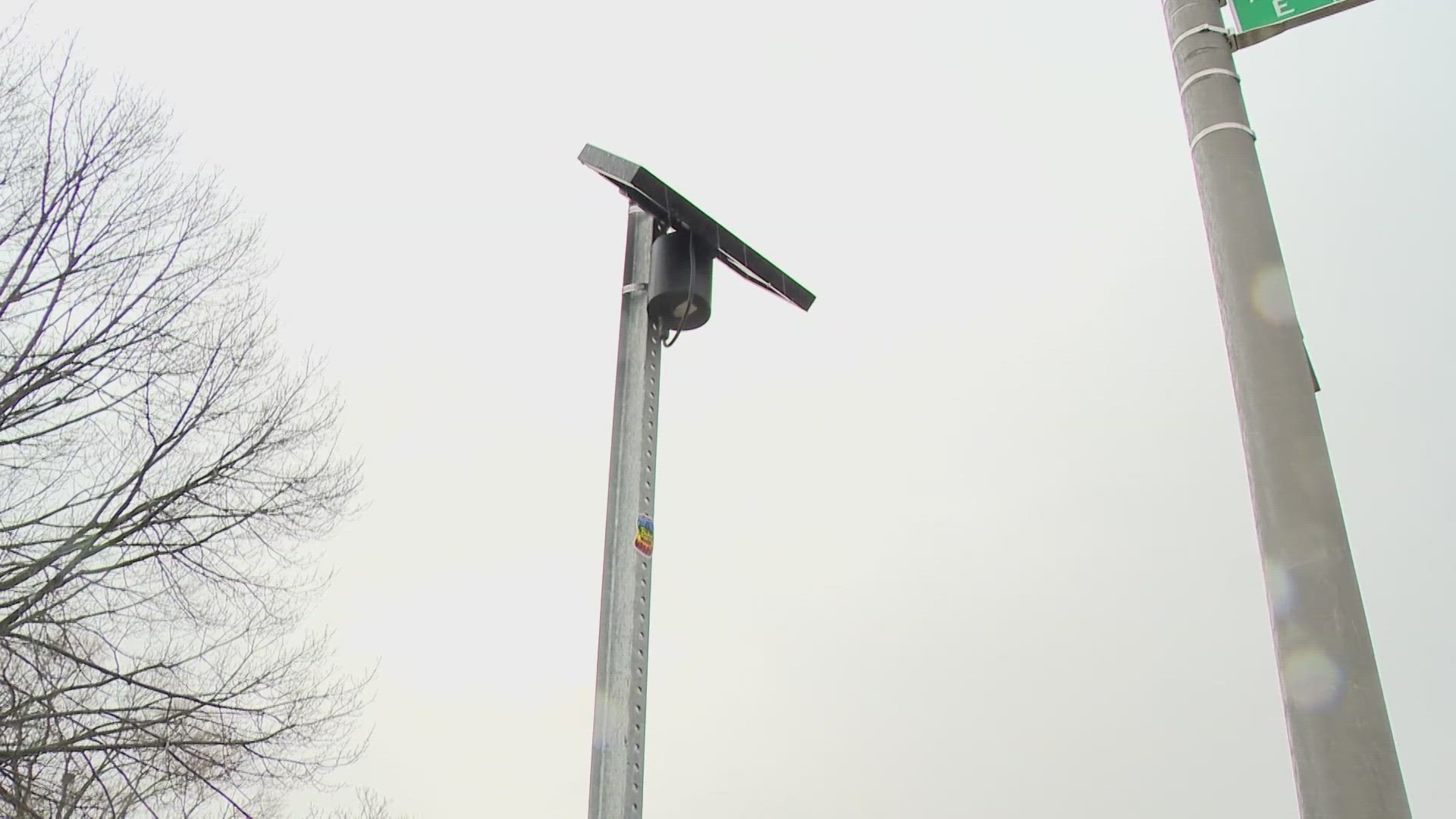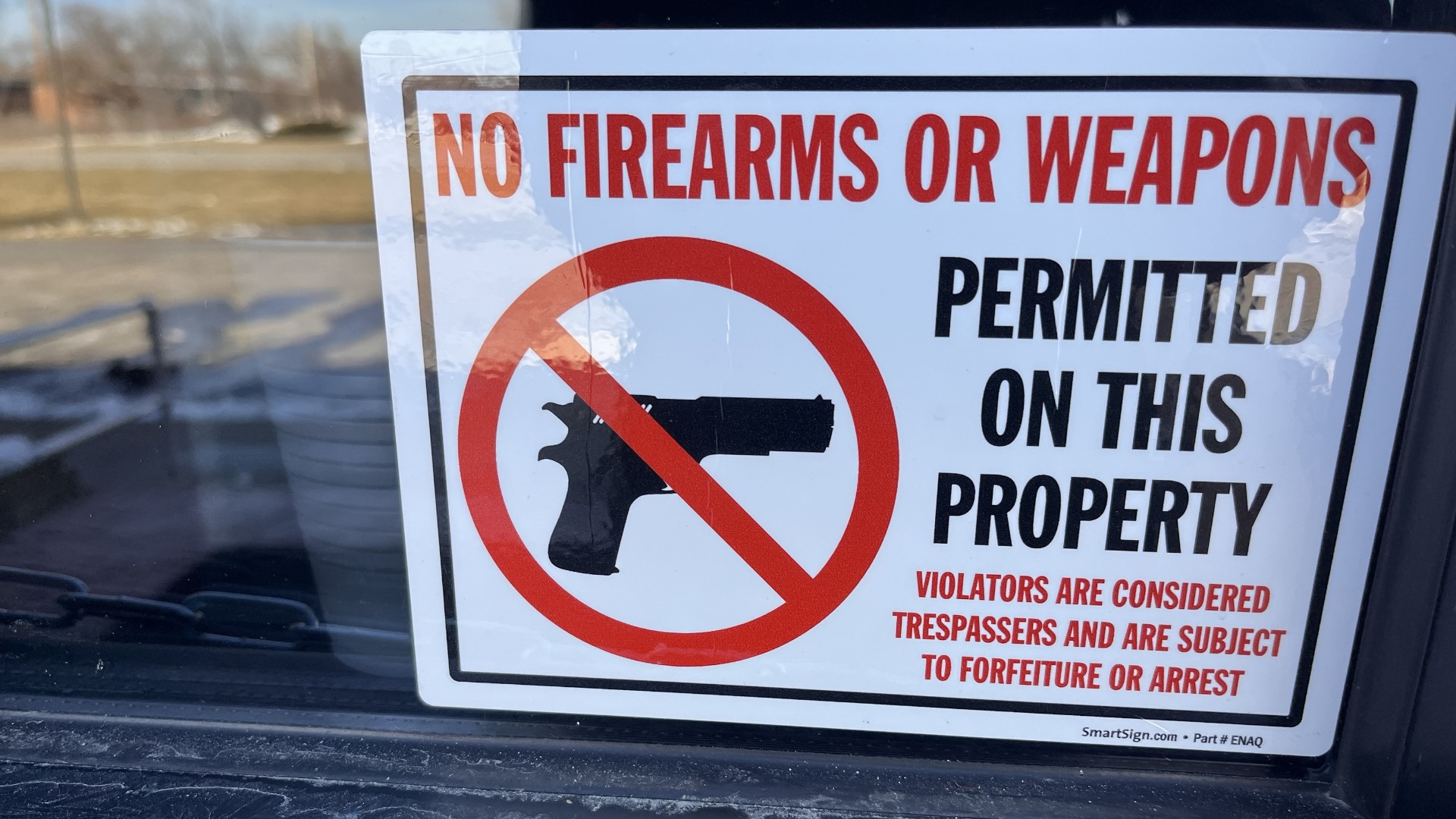INDIANAPOLIS — It’s been more than a year since Indianapolis Metropolitan Police Department officers tested gunshot detection technology on the city’s east side. The pilot program involved sensors installed throughout neighborhoods to detect gunshots.
When a sensor detects gunfire, an alert is sent to officers to respond.
While department leaders analyze the results of the pilot program and consider the costs, 13News talked with a local criminal justice expert who studies how effective gunshot detection technology has been in other cities.
"It identifies gunfire and gives you the exact location," said Jeremy Carter, professor and associate dean in the Paul O’Neill School of Public and Environmental Affairs at Indiana University - Indianapolis.
Carter and his colleagues studied gunshot detection technology in Kansas City and Chicago. The study found that the recovery of illegal firearms increased, particularly at the scenes of fatal shootings. They also found that the technology “can increase the number of gunshots that receive a police response, which is important, given the long-acknowledged problem of unreported crime.”
"Police respond, on average, quicker," Carter said. "The problem is in our research, is that it actually creates no crime prevention benefit."
A separate report compiled by the MacArthur Justice Center, entitled "End Police Surveillance," showed in both Dayton, Ohio, and Houston, Texas, gunshot detection technology led to arrests just 2% of the time.
The reports were compiled over separate periods of time between 2019 and 2021.
"There's no reduced gunfire, no reduced fatalities," Carter said. "None of the substantive outcomes that people would expect to see, especially based on the investment."
According to previous reporting by 13News, it’s a $9 million investment that would come from federal American Rescue Plan funds.
Earlier this year, Chicago announced it would no longer be using gunshot detection sensors.
Still, some neighbors 13News spoke with in the last few years said these sensors are valuable to them — and not just because police get to the scene faster.
They say it makes them feel safer — especially, advocates say, if neighbors are afraid to call police or don’t know exactly where the shots are coming from.
Studies also show that because gunshot detection technology leads to faster and more precise response times, it can lead to faster medical aid for victims.
“Saving lives is the reason police prioritize gunfire alerts,” a spokeswoman for SoundThinking told 13News.
The company owns ShotSpotter, a gunshot detection system used in more than 150 cities across the country.
That spokesperson said most – 80% or more – shooting incidents are never reported to the police through 911.
“ShotSpotter fills that void,” said Tom Chittum, vice president of analytics and forensic services for SoundThinking, who added that not all shootings result in wounded victims, but when they do, speed and precision matter.
“We know from the experience of many of our customers is that ShotsSpotter often leads them to gunshot wound victims where there was no corresponding call to 911. The effectiveness and value of the system can be measured in those lives saved,” Chittum said.
Clif Marsiglio, an east side resident and neighborhood organizer, said he’d rather spend more money on crime prevention.
"Our city needs a lot more fixes than something that happens on the end of crime. We need to be preventing crime," Marsiglio said.
IMPD hasn’t said specifically when it would decide whether to purchase the technology.


